The Rare INFP Male
INFPs are an unusual and rare group of individuals. In the U.S. they make up a mere 2-5% of the population. Male INFPs are even rarer, making up only 1-1.5% of the population. These value-driven, imaginative men often feel like the definitive square pegs in round holes. In a culture and society that perpetrates the idea that males are normally domineering, assertive, and blunt, the male INFP can feel that there is something innately wrong with them or unacceptable to others. This struggle isn’t limited to males in the U.S. either. This seems to be a worldwide dilemma.
“In the country I’m living in (the Philippines), I’ve met many people in my life who seem to think that a quintessential male should have at least these traits – outspoken, bold, tough-minded, decisive, and logical. As a male INFP, I just couldn’t get used to those traits and even if I try to do it, I can only act like it for so long.”
– Nigel, an INFP
Not sure what your personality type is? Take our new personality questionnaire here. Or you can take the official MBTI® here.
Table of contents
Estimated reading time: 9 minutes
This post contains affiliate links. I only recommend products I truly believe in.
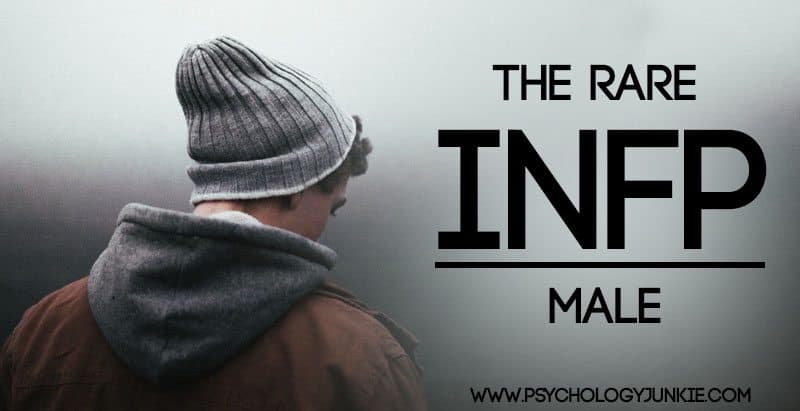
An Introduction to the INFP
INFPs lead with a cognitive function called Introverted Feeling (Fi). Fi is extremely focused on one’s own values, emotions, and ideals. Because of this, INFPs feel things deeply, are driven by their convictions and have an individualistic moral code. They constantly ask themselves if something is right or wrong or if it aligns with their identity. Many people mistake having a feeling preference for being simply “emotional”, but this is far from the truth. The feeling preference of the healthy INFP drives them to be honest, compassionate, introspective, and brave when adhering to their beliefs. Frodo Baggins from The Lord of the Rings is a good example of a fictional INFP. He wasn’t simply “emotional”, he was brave in the face of adversity, kind, honest, and empathetic with even the most flawed characters.
The second cognitive function of the INFP is Extraverted Intuition (Ne). Extraverted Intuition is focused on theoretical possibilities, innovation, and imagination. INFPs often have hundreds of creative and unique ideas that they want to explore and discover. They see things from numerous angles and extrapolate endless possibilities from a single point of interest or idea. Because of this, they seem open-minded, imaginative, and curious. They may struggle to be decisive because they see so many different sides to an issue. Many of our great authors and musicians have been INFPs, and have used Ne to creatively bring their values (Fi) into existence. Notable creative INFP males include A.A. Milne, Albert Camus, William Shakespeare, Matt Bellamy, and even John Lennon!
The third cognitive function of the INFP is Introverted Sensing (Si). Introverted Sensing focuses on personal experience and details accumulated in the past. INFPs have a certain nostalgic quality about them; they like to re-imagine favorite memories, revisit favorite places, and they trust their personal experience and use that to strengthen their convictions. This function isn’t as strong as their intuitive function, but it is still a driving force in their life. They are more likely to use this when they are in a stress-free zone, as a “tool” or hobby.
The fourth cognitive function, or inferior function, of the INFP is Extraverted Thinking (Te). The inferior function is often considered the “Achilles heel” of a person. Te is associated with decisiveness, objectivity, and rational thought based on empirical evidence. INFPs can use Te to bring their creative ideas to life. It’s what helps them be productive, finalize decisions, and create a logical process. Because this is the inferior function, INFPs may repress it in favor of using Introverted Feeling (Fi) and Extraverted Intuition (Ne). Fi often conflicts with Te; where Fi says “how does this align with my values?”, Te says “what’s the best impersonal logical plan?”. Fi users may struggle with using Te and may have difficulty maintaining objective logic. When stressed, INFPs may fall “into the grip” of Te. You can find out more about this here.
The INFP Male – A Contrast From the Norm
According to this web site, 65.5% of the male U.S. population is made up of thinking personality types, and 71.5% are made up of sensing types. INFPs often feel misunderstood or out of place amongst their sensing, thinking male counterparts.
“Males are discouraged from pursuing many positive traits that are perceived as unmanly. These include the ability to feel a range of emotions, including fear, hurt, confusion or despair. Even talking about these feelings is considered unmanly. Men are also not encouraged to learn to work cooperatively without the need for control, to love in a nonsexual way, to have friendships or to solve conflicts without violence.”
– The Center for Media Literacy
INFPs, who are driven to understand their own emotions and who feel things deeply often try to repress their personality or are bullied into repressing it. INFP men may be told by their parents or peers to “man up” or that “boys don’t cry”. They may have to constantly check into their inferior Te to become more like the stereotypical male of today. In doing so, they can feel constantly drained, worn out, and disconnected from their true self. This constant repression can cause them to appear moody, angry, or irritable. This can have detrimental long-term effects. According to the MBTI® Manual, male INFPs are one of four types most common in substance abuse programs. They also show the highest levels of depression of the 16 types with chronic pain.
“Showing sensitivity is viewed as a sign of weakness, and since I lead with the Fi function it has been a struggle to fit in. Shedding a tear or taking things personally seem to be non-masculine.”
– Nigel, an INFP
INFP boys who are encouraged in their identity or who feel they can fully be themselves grow up to be brave, authentic, and compassionate. They are creative and think outside the box, unafraid to color outside the lines or be different from their fellow men. They embrace their uniqueness and individuality and can also accept their peers for who they are. They appear like a breath of fresh air in a world that is often jaded, harsh, arrogant, or cruel.
“I have no right, by anything I do or say, to demean a human being in his own eyes. What matters is not what I think of him; it is what he thinks of himself. To undermine a man’s self-respect is a sin.”
– Antoine de Saint-Exupery, a rumored INFP
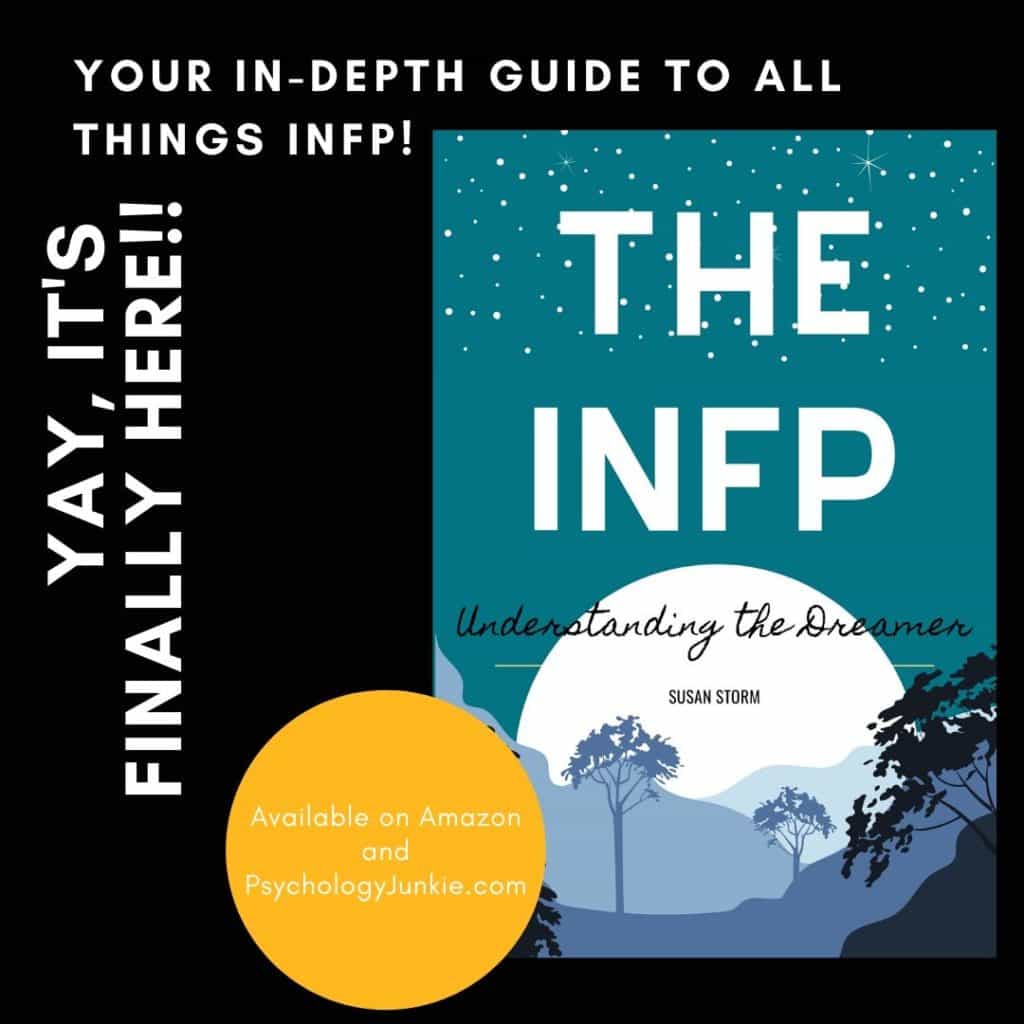
What the INFP Man Needs In Childhood:
– Plenty of time to read and explore their imagination with books.
– Someone who will listen openly to their emotions and ideas without judgment.
– Parents who will speak softly and be gentle and understanding with discipline.
– Encouragement for their ideas and dreams.
– Help with making tough decisions and staying organized.
– Parents who seek their creative input when trying to solve problems.
– Support for their intellectual curiosity and artistic abilities.
– Respect for their deep feelings.
– Plenty of time alone to daydream and imagine.
– Encouragement in their unique skills, even if they don’t fit with the “norm” for other boys their age.
The Strengths of the INFP Man:
We’ve talked a lot about the hardships that male INFPs face, but healthy INFPs also have a huge list of strengths and abilities that can help them to lead a successful life.
#1 – INFPs are Fearless In Defense of Their Values
While many stereotypes may describe INFPs as sensitive and easily wounded, they are actually quite brave in the face of conflict if it is in defense of their beliefs. They will fight for the underdog or for a cause they believe in with ceaseless determination and integrity.
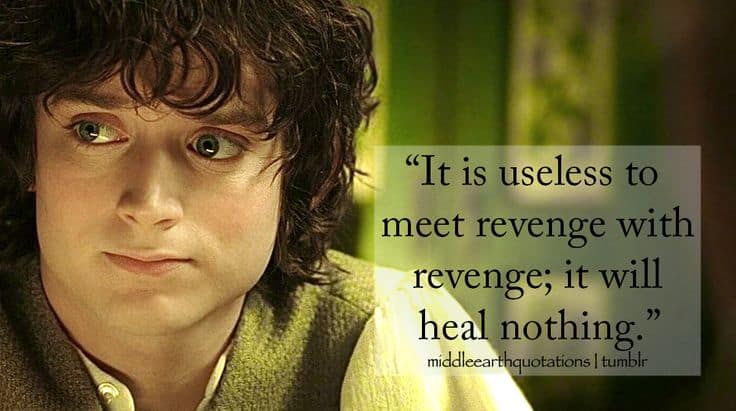
#2 – INFPs Are Innovative Problem-Solvers
INFPs can see numerous unique solutions to complex problems. They think outside the box and can see solutions where other people may not think to look. The “tried and true” technique that so many others rely on can be cast aside and an ingenious idea can be provided by many INFPs.
#3 – They Are Creative
INFPs like to express their values and belief through creative means. They often make skilled writers, musicians, and performers. Hans Christian Andersen, Vincent van Gogh, Jim Morrison, and Andrew Garfield are all rumored to be INFPs.
#4 – They Are Excellent Listeners
I’ve said this repeatedly in my blog, but INFPs are often considered the best listeners of the 16 types. Neuroscientist Dario Nardi found that INFPs listened with their “whole brain” more than any other types. He says in his book The Neuroscience of Personality that INFPs “often enter a special listening mode. They are consummate listeners. They thoroughly engage all brain regions that process voice, words, and sounds; moreover, they may easily enter a unique whole-brain state when listening to other people, whoever those people might be.”
Because of their strong listening skills, INFPs are often excellent in the fields of counseling and psychology, where they listen and find innovative solutions to complex personal problems.
#5 – They Are Compassionate and Sensitive
INFPs easily feel for the plights of people (or animals) who are suffering or marginalized. They are eager to lend a hand to their cause and will go to great lengths to improve the lives of the suffering. They believe in stepping into another person’s shoes and listening before casting judgment. These qualities make them trusted confidantes and gentle, understanding friends.
In Conclusion…
The INFP man may have to overcome many obstacles in order to be accepted in certain cultures and families, but if they can grow to love and accept who they are, they can achieve amazing things for the world. They provide insight, empathy, and creativity that the world desperately needs.
Find out more about your personality type in our eBooks, Discovering You: Unlocking the Power of Personality Type, The INFJ – Understanding the Mystic, and The INFP – Understanding the Dreamer. You can also connect with me via Facebook, Instagram, or Twitter!
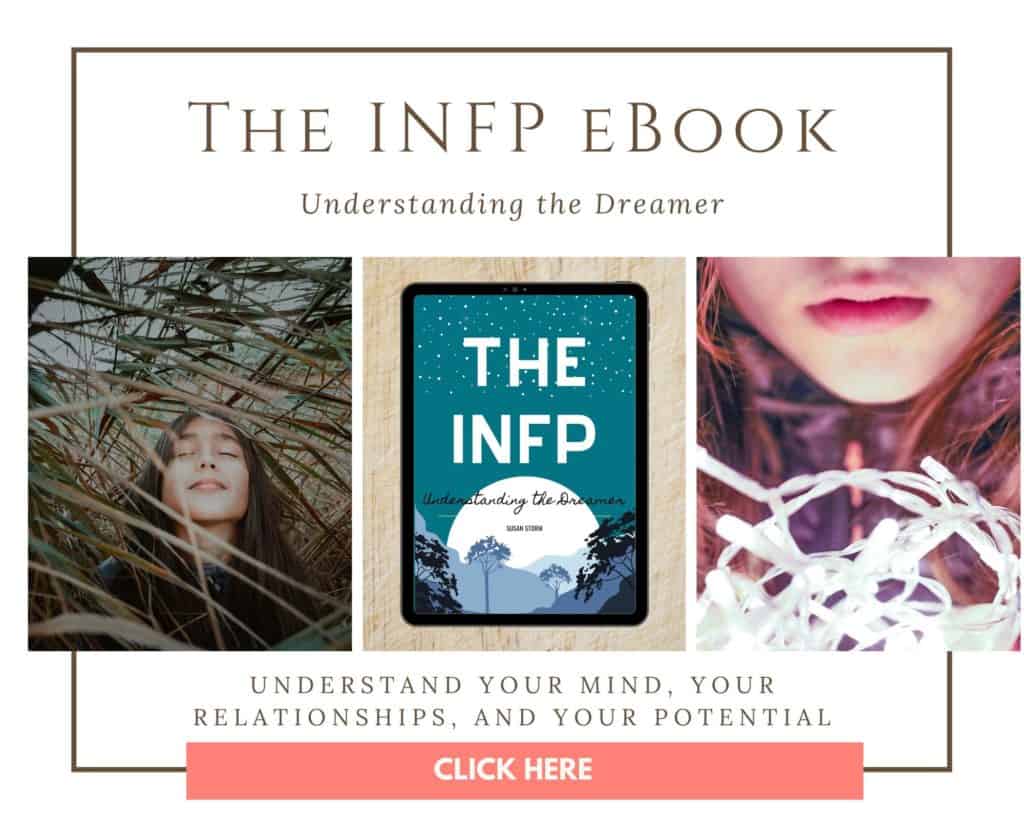
This article contains affiliate links. I only recommend products I truly believe in.

Other Articles You Might Enjoy!
10 Surprising Truths About INFPs
Why INFPs and INFJs Are Drawn to Sad Things
10 Things That Terrify INFPs – According to 301 INFPs
Sources (Book links are affiliate links):
The MBTI® Manual – Third Edition.
Nurture by Nature: Understand Your Child’s Personality Type – And Become a Better Parent
Gifts Differing: Understanding Personality Type

This post may contain affiliate links.











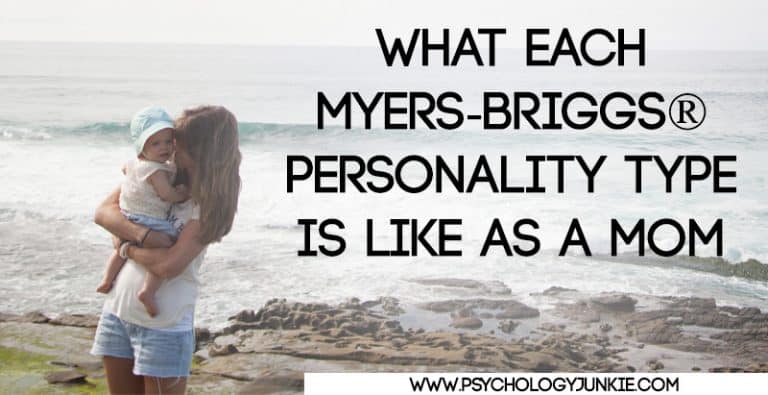
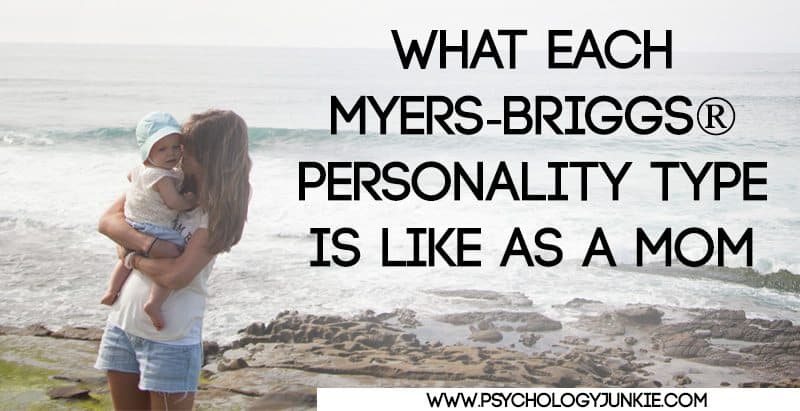
Yeah, this type is pretty rare. I’ve only met three of them- me, myself, and I.
The question then begs, how old are they?
This is like reading the manual my parents needed. Memories of specific moments flooding back, leaving me in a state of melancholy and regret. Alas, it’s no use lingering in the past.
Thank you anyway for making this article.
I doubt there are many we’ll balanced adult male INFP out there, the world pretty much beats it out of them from an early age. It’s hard enough for females, I can only imagine how much harder it is for gentle, unassuming, caring males in a world that values blind self-confidence, disregard for others and general brashness as desirable attributes of a$$hole – ahem, I mean alpha- males.
Thank you! You put the words and reality in sentences. I have met some other INFP males also. None of them were well balanced, me neither!
Luna,
You have stated a sad truth. Many of the INFP males I have encountered were beat down or broken. I have been looking for them and have only found a handful. It almost seems there is a force in the universe trying to stop caring, gentle, men from becoming the powerful souls they were meant to be. My suspicion is that INFP men can change the world if they can only feel learn to feel safe and get out of their own way.
As a young INFP, I discovered I had a talent for strength training and built my body up to the point that I was able to threaten the alpha males that looked for any opportunity to make fun of a gentle soul. I had simply grown tired of schoolyard beatings. (I had skipped a grade too, exacerbating the problem) Then, with my verbal intelligence and ability to bench press over 300 lbs I started to “hunt” alpha males who were picking on weaker members of my social circle and pretty much any “alpha jerk” that I came across who did this. To this day I work on not having a hero complex “bullying the bullies” as I had so much resentment from my early childhood when I was used as a social stepping stone in grade school and junior high.
It was easier to work out like a maniac so I could stand alone against the biggest guys in college than it was for me to just trust that the universe would keep me safe. It was a sad reality. My weight training allowed me to keep my personality intact, but at a high price of stress. I think many INFP guys would relate to a lot of what I am saying.
I think for many INFP males, there is a need to be connected to others who could simply just “get” them. Artistic groups, subcultures, and individual friendships are key. Finding them is a huge problem though. It’s like being a unicorn, searching for more unicorns in forests full of deer. (There’s an INFP metaphor for you!)
If you have an INFP male in your life, the gift of a safe place to exist is an amazing boon for them. Even greater however, would be the gift of understanding their heart and what they are passionate about. That’s my two cents anyway.
Yeah, I was a bully beater, too. My latest challenge is finding non-aggressive ways of dealing with what the dating community calls AMOGs (alpha male other guy). These are the frustrated alpha jerks who like to hit on women who are in committed relationships, often while their man is present. I take these advances on my wife as a direct slap in my face, and my aggressive response typically yields shock and awe on their part. However, as an established man with a lot to lose in this litigious society, I’m working on more tactful methods.
Wow. Goodness, this so just accurately described me.
Not only rare, but unique within our own type. We can be seemingly meek like Frodo Baggins, or brooding badasses like Edward Cullen from Twilight. INFP men seek peace and harmony in social situations, so we rarely take charge or make ourselves the center of attention. This is our downfall when dating women who want overly-assertive men. Many people, particularly ESTJ types, make the grave mistake of interpreting our laid back nature as weakness. INFPs have very long fuses, but get out of the way when they burn down because you’ll find yourself in Satan’s sauna. We are the quiet guys your father always warned you not to mess with.
Not all of us express our creativity through books, arts and poetry. Action sports were my canvas. We are feelers, but when you mix this with testosterone and adrenaline you get all kinds of unexpected and unique results that can be a far cry from soft or effeminate.
The first 25 years of my life were a dating disaster. I was attractive and athletic, which got me plenty of dates through junior high and college. However, I exhibited virtually no other traits of the ESTJ ideal, and had trouble maintaining relationships. I felt like a stranger in a strange land. It didn’t help that I was drawn to extroverts, which I found needy and exhausting. I really had to step out of my natural personality to try to appease them.
My late twenties were the start of a successful self-improvement project. INFPs are very introspective, so self-analysis and self-improvement are well within our capabilities. By 30, I was in full stride and had developed an effective but unique dating style. I had developed basic E skills, and partnered with ESTJ player-types as their ultimate wingman. I learned a lot from these guys, most of whom developed their skills with women by growing up with sisters.
By 35, I was fully self-actualized. I’d had an intermittent stream of relationships with women who wouldn’t have given me a second glance ten years earlier. I still relied heavily on alliances with ESTJs to meet these women, and I surely didn’t have universal appeal, but I was finally able to maintain relationships with the quality of women I’d always felt I “deserved”. Nevertheless, I had long dry spells and extended recovery periods, which is typical of INFP men. At 50, I’ve developed many effective coping mechanisms for the challenges of being an INFP male.
I absolutely love my INFP man! He is amazing!
Come check him out: http://www.dutchsinse.com.
He is saving the world. =)
Thanks for the article.
I’m glad you enjoyed it! Thanks for reading 🙂
It is dead on. Wish I’d had this back in 1981 – but waltz of life keeps playing..
I feels like i have found myself at last, in words. (English is second language)
So true So me
Great article and awesome comments. I’m well balanced and an INFP despite the setbacks and moments of self doubt. I am who I am. It’s great! Yeah sure, I have some insecurities and flaws but that’s called being human. Anyone without fear or insecurity is not alive.
Sometimes you get trodden on, but hey, it happens to us all. Sometimes I struggle to win over the girls. I’m a little shy. Sometimes I need to be more assertive at work. But other things society values, like empathy, trust, sensitivity and passion comes easy for me. I’ve played football, martial arts etc. I love helping people.
Have a go at excepting who you are and play to your strengths and be conscious of the weak spots. Referring to humans as Alpha/ beta males is bull crap. It’s ridiculous. That’s how they refer to apes. We are humans who have evolved differently and posses a much more advanced and complex social life. When you realise this, and stop trying to label ourselves as either alpha or beta, you come to realise you are your own person with amazing human qualities that can make its own little mark in the world…for the good.
The world needs you for who you are. It’s what’s makes this world beautiful. We are needed and we’re created this way for a reason. Be proud and embrace your personality. Know yourself, be yourself and live it.
Im a female INFP who have met a male INFP. what are the odds? 😀
I actually met my first female INFP last month and it was like a breath of fresh air. A two hour random conversation between two introverts, it was awesome.
I am he; the INFP.
Welcome INFP! 🙂
I always thought I had to figure out the right way to think or of course, feel because I felt so out of place with most other guys. I always had more female friends. After a psychologist had me tested he sat me down and explained to me that I was an INFP and what that meant. I was blown away because it described me down to the last detail. It gets easier with awareness like that to accept yourself as you are and learn to love yourself consistently perhaps for the first time in your life.
I didn’t fit in with the ladies (girly ones), and not the guys either since it felt like they ridiculed me a lot. It’s a friend who is lgbt person who once approached me and said they understand, or the outcasts. Now I understand Kurt Cobain being feminist or stand up for his gay friends. I love my family and they support me through and through, but it seems I could hardly connect with them or be my true self, even with my own cousins. They look for me to be decisive and being on more authority role as the oldest. Wich I did well, but Gets overwhelmed and often need to be alone.
Excellent and perceptive article, Susan. It describes me accurately.
Keep writing..
Thank you so much!! 🙂
How i wish the ones I knew were this inwardly strong, this radically sensitive. Instead what I mostly got was MUH FEELINGS! Screw everyone else’s only me-me-me matters! *more crying noises* In my experience when one becomes unhealthy they become incredibly childish, selfish and insensitive, almost on par with the most unhealthy of NT types. Ugh never again…
Oh please. You seriously came into an article about the struggles about INFPs males and you somehow found it okay to make it all about yourself and how one hurt you? lol
Talk about selfish, childish and insensitive.
I’m looking for what seems to be the opposite of what most online resources are focused on. I’ve not only taken your recommendation test but my company about a decade ago paid for one and trained us as well, so there is no doubt, INFP is what I am.
The confusion is that I have an extremely heavy engineering background and it almost feels like my inferior function of extraverted thinking is way more developed than my first three functions. So I’m actually looking more at how to develop my personality and how to leverage my already heavily developed inferior function.
Essentially I’ve always worked and been trained as an ESTJ. So I’m actually thinking my path to growth is learning more about how to leverage my true self as an INFP. Being able to swap between these two opposites in every way has been fantastic professionally but so confusing personally.
Even in this heavy engineering environment my INFP has been present, just never developed beyond me naturally doing it, if that even makes sense.
What are your recommendations for someone like me who has so much training in my exact opposite personality type?
It feels like even those rate few who could understand me wouldn’t as everything that I read really says that I’m much rarer than my already rate self.
A heavily developed ESTJ who is really an INFP. It just sounds like I could do so much more being a, pop culture reference, 100% divergent.
Thank you in advance,
Take what I say with a grain of salt. I am not an INFP; I am an INTJ who is working on developing her Fi and has figured out what has worked for her.
Make yourself regularly spend quiet time with just yourself and your unfiltered feelings, maybe 15 minutes every day, and do not try to solve the problem before the end of that quiet time. Gather emotional data, validate your own feelings, and seek to understand the meaning of the emotions. I do all that in my head, but if you need to express the feelings on paper to discover what they mean and are, absolutely do that. After you have made sense of sufficient emotional data, then you can get into action that is truly in alignment with your personal values.
Ne is an INxJ’s Opposing Personality, and I have a lot of experience using Se and Ni to silence Ne when it sabotages me. I have not tried to develop Ne, and I only use Ne when absolutely necessary to my lack of enjoyment of it. Ne is helpful for INxPs, though, so find ways to use it more in your life.
I hope this helps.
I have found in my work that there seems to be a generational factor to be considered. For example: the Veteran and the Boomer generations were raised with the ideal male role model being ESTJ.
Growing up as an INFP child I was constantly being forced into the i”deal” model time and again. “Boys don’t cry”was reinforced through social ridicule and shunning as well as physical assaults, often by Veteran generation fathers. (The old saying paraphrased: The beatings will continue until toughness is achieved.)
Competition in sports and male socialization was the rule. INFPs, I have found (especially in my personal life), are generally uncomfortable in zero sum, won/lose situations, unless their values and the welfare of others is on the line.
Physical injuries, especially those incurred in sports, were treated as the individual’s fault and they were told to “walk it off” and get back in the game. In my case it meant hurriedly taping myself and going back into the game with injuries including a broken ankle (football), a torn MCL (wrestling), and a broken wrist and fingers (basketball). The alternative was being benched and regarded as unreliable.
I have been enormously encouraged by the dawning societal awareness of how diverse people and groups bring all kinds of benefits to the table and the increasing veering away from the old “ideal”for males.
Discourse, such as you and your site offer, is vital to fostering understanding of the self as well as societal diversity. This is a very well done research article.
Under: “#2 – INFPs Are Innovative Problem-Solvers”
*by [ <– extra space here, please delete] many INFPs…
I love listening, only problem is nobody wants to listen to me.
We get interrupted and talked over often. But as we get older we learn how to not be overshadowed by people.
I was delving into some INFP stuff on break when I came across this. It does ring pretty true. I’ve taken different tests, some years apart and they all said I was INFP. Looking over the “What male INFPs need during childhood” and I realized I had one of those things. Just one. For at least maybe half my childhood (that I remember) I’d had “Plenty of time to read and explore their imagination with books.” But after I hit maybe 10-11, no more time like that. Sure I played DnD on the weekends, but that’s not the same. After 10 it was baseball and basketball, then just baseball with fall ball…I didn’t have time to hang out or relax. My youth was spent at city ball fields for practice, games, or being stuck there because my dad wanted to talk to the coaches in the next game so an 9am game would sometimes mean I got home by like 4pm
I feel that in my core. I can’t tell you how many times I’ll be talking and someone just cuts me off. I usually shoot em a death glare, but there have been times where I cut them off with a harsh and blunt “Well, guess I’ll just go f*** myself then”. Usually when that happens they get all flustered and apologetic and I tend to be passive aggressive in saying “No, continue. Your story is *soooo* much more important than mine”. I’ve even walked away mid convo because I was cut off. But it is true that no one ever seems to want to listen. I’ve got maybe 2 friends who will listen sometimes. Other than that, I can listen to people for days, but as soon as I want to talk, either they’re “busy” or (as had been my train of thought amidst a deep depression), I had felt like a burden. Even my best friends wife telling me I wasn’t a burden still hasn’t been enough for me to really open up to them.
Well I’m a male INxP (I fall in the middle of the Feeling-Thinking spectrum). So how rare is that?
Yes. I seem to also test either as an INFP or INTP. Very confusing.